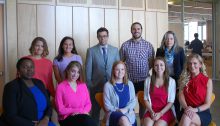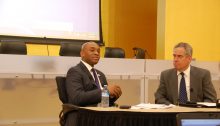The Women’s Law Center of Maryland Practicing Preventive Law
By Marleigh Davis, CFCC Student Fellow (2016-2017) When I reflect on what I learned in my first year of law school, what comes to mind is reading and discussing judicial opinions in cases that already had been litigated and decided. What is not often discussed in class is what happens prior to litigation. I interned…


